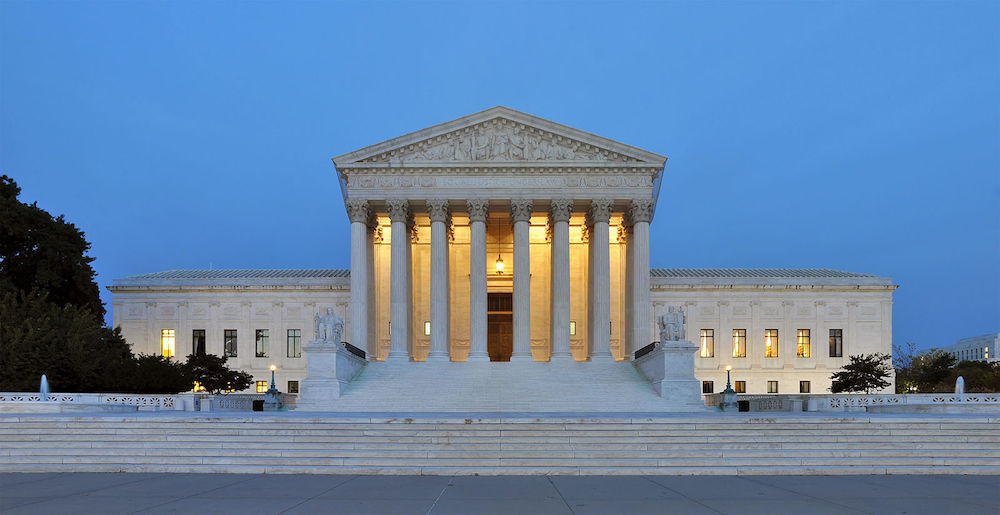The most important SCOTUS cases to keep an eye on this year

At the end of September, the nation’s attention turned to Supreme Court nominee Brett Kavanaugh and the now-infamous hearing regarding Dr. Christine Blasey Ford’s allegations of sexual assault against him. While that Supreme Court-related news was obviously worthy of attention, it caused many to overlook the fact that just days later, the Supreme Court began its October sitting on the first Monday of the month. The cases that have been granted certiorari (meaning that the Court has agreed to hear oral arguments for them) cover a multitude of important topics, ranging from state sovereignty to the Eighth Amendment, and could have immense effects on the country. Here are some of the big cases to watch this term.
Vernon Madison has been on death row in Alabama for over 30 years, since being convicted of killing a police officer in a domestic dispute. In recent years, however, he has suffered from multiple strokes, which have severely affected his memory — in fact, he is unable to remember the crime he committed. He also suffers other symptoms of brain damage, including speech, visual, and physical impediments, and is unable to walk independently. He is able to understand that he is set to be killed by the state, however, and so the state has decided that they can still execute him without violating his Eighth Amendment right, which protects him from cruel and unusual punishment.
The Constitutional questions raised by this case include whether or not the Eighth Amendment and the Court’s jurisprudence can prohibit a state from executing a prisoner whose mental disability leaves him with no memory of the commission of the capital offense. It also raises the question of whether the Eighth Amendment’s prohibition of cruel and unusual punishment precludes a state from executing a prisoner who suffers from severe cognitive dysfunction such that he cannot remember the crime for which he was convicted or understand the circumstances of his scheduled execution.
Mount Lemmon Fire District v. Guido
An important case regarding employment opportunities and age discrimination will also be heard this term. John Guido and Dennis Rankin, 46 and 54 years old respectively, were the oldest members of their firefighting team when they were terminated in 2009. They filed charges with the Equal Employment Opportunity Commission (EEOC) against Mount Lemmon Fire District, which in turn found evidence that the district had violated the Age Discrimination in Employment Act (ADEA). The Fire District, however, argued that they are not an “employer” as is defined by the ADEA, because they have fewer than 20 employees, and the district court in the original case agreed. The case was then appealed to the District Court for the District of Arizona which reversed the decision. Guido appealed to the appellate court, the 9th Circuit U.S. Court of Appeals, which ruled that the Mount Lemmon Fire District, as a political subdivision of the state, does not need to have 20 employees in order to be covered by the ADEA. Now, it will move to the Supreme Court.
This case raises the question of whether the same 20-employee minimum that applies to private employers also applies to political subdivisions of a state or if the ADEA applies instead to all state political subdivisions of any size, as the 9th Circuit U.S. Court of Appeals, held in this case.
While at a snowmobile race in July of 2014, Russell Bartlett, a spectator of the outdoor festival, was approached by State Trooper Nieves. Bartlett declined to talk to the trooper because he felt he was not engaging in any misconduct and therefore had no reason to. Later that day, Nieves arrested Bartlett for yelling at another state trooper, Bryce Weight, claiming that he believed Bartlett posed a threat. Bartlett claims that Nieves said “Bet you wish you had talked to me now” as he was arrested, thus prompting charges of retaliatory arrest as prohibited by the First Amendment. In addition to claims of retaliatory arrest, Bartlett is also claiming he was falsely arrested and imprisoned, maliciously prosecuted, and that excessive force was used against him by Alaska state troopers Luis Nieves and Bryce Weight. This case will determine if probable cause defeats a First Amendment retaliatory arrest claim.
In 2012, the Township of Scott, Pennsylvania, passed an ordinance that ensured that all cemeteries would be open to the public at all hours of the day and granted the public privileges to enter these cemeteries in order to ensure that they are open and accessible to the public. Rose Mary Knick, a township property owner, was charged with violation of the ordinance in 2013. At that time, an officer from the township entered her property without an administrative warrant and identified certain stones as old grave markers. Knick disputes the existence of a cemetery on her property and filed a challenging lawsuit.
Knick’s most salient claims are against violations of her Fourth and Fifth Amendment rights. The Fourth Amendment protects her right to privacy, which was arguably violated by the officer’s presence on Knick’s property without a warrant. The Fifth Amendment comes into play in terms of a clause of the Amendment called the “Takings Clause,” which states that “private property [shall not] be taken without just compensation.” The question here is whether or not Knick received just compensation.
More articles by Category: Politics, WMC Loreen Arbus Journalism Program
More articles by Tag: Law, Civil rights, Supreme Court


























